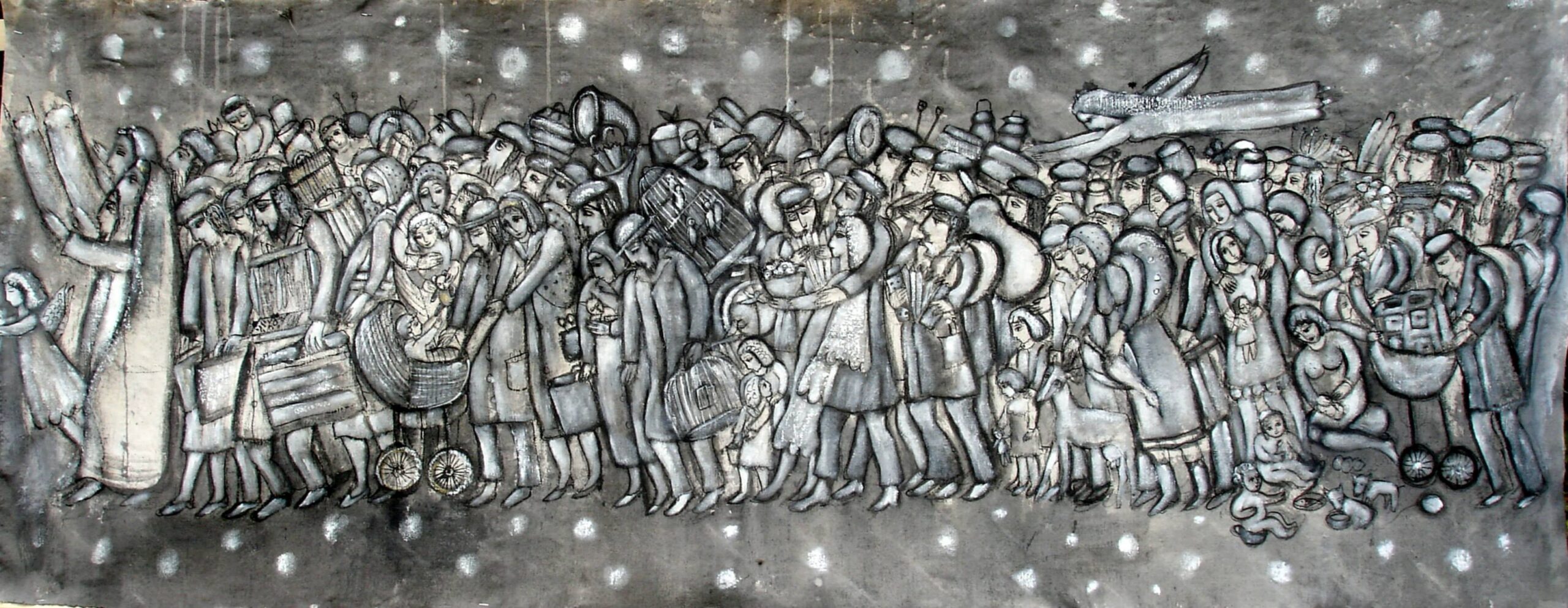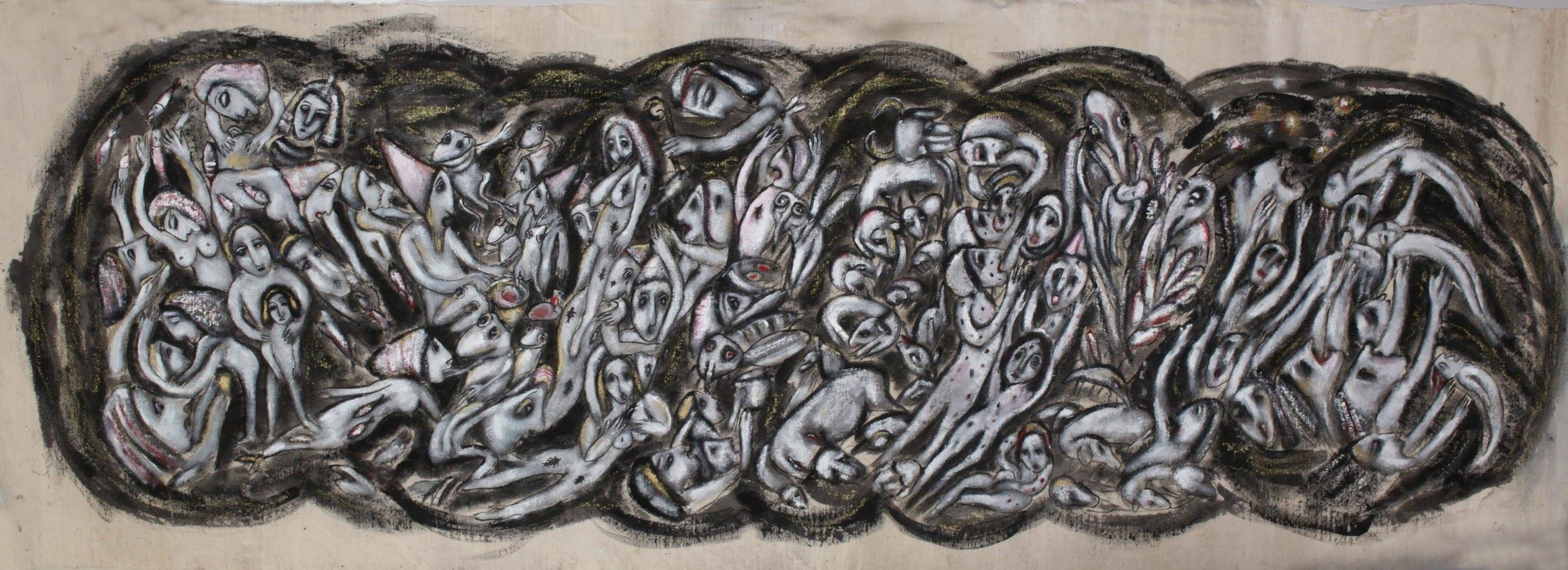Torah Study Date
Saturday, April 1, 2023
Verses Covered
Exodus (Sh’mot) 5:1-5:18
Next Session
Saturday, April 8, 2023
Starting at Exodus 5:19
Last week we discussed M&A telling Pharaoh that YHVH, the God of Israel, said to let my people go that they may celebrate a festival for me in the wilderness: that M&A begin with a messenger formula, “thus says YHVH”; that “shilach” can mean “let go,” “send away,” “dismiss,” “send off” or “set free/emancipate”; that M&A do not bow and scrape or use a polite form of speech; that Moses does not follow God’s order to perform the portents and does not threaten Pharaoh’s son (events suggested previously). We noted that both M&A speak to Pharaoh here (suggesting to some that Moses did not know Hebrew well because he did not speak to the Israelites but does speak to Pharaoh).
We discussed that the personal name of God–YHVH—was not known to previous Israelite generations, to Pharaoh, or to the world. We noted Pharaoh asking who YHVH is, saying he does not know YHVH, and saying he will not let Israel go: that a midrash says Pharaoh looked up the name in a book of gods and didn’t find it (ha!); that Pharaoh was regarded as a god and so has no reason to recognize a Semitic deity.
We noted that M&A become humbler with Pharaoh, stating that if they do not make the sacrifices, YHVH will strike them (Pharaoh could understand this; also, he would not want them to die since they were his slaves). Pharaoh does not agree but asks why they were letting the people loose from their work (where “letting loose”—tafriyu—is a pun on “Pharaoh”). We wondered why M&A are free to come and go (perhaps because Moses was raised in Pharaoh’s court–did Pharaoh recognize him? Is Moses speaking Egyptian?). Rashi explains that M&A are Levites exempt from labor (but, of course, the fact that they are Levites would not matter to Pharaoh). At the same time, Pharaoh saying that the people are so many conveys to Moses and Aaron they are slaves like the rest. We also wondered if the Israelite people know that the idea of a short (three-day) trip is a ruse or whether only M&A are aware that it is.
We discussed Pharaoh’s command to the taskmasters to engage in a work speed-up (requiring the slaves to meet the same quota but to collect/scrabble straw for the bricks themselves because they are lazy); that “kavod” (heavy) comes up again with Pharaoh wanting the work to be heavy on the slaves (it also appears in past and future passages about Moses being heavy of mouth and tongue; Hebrews leaving Egypt heavy with livestock; Moses’ arm growing heavy in battle with the Amalekites; Sinai being heavy with clouds—repetitive instances that unify the biblical narrative).
We noted the text reiterating that the people would have to spread out through the land of Egypt to collect/scrabble for the straw; that the overseers/officers were beaten by the taskmasters (indicating that the former were Israelites and the latter Egyptians) because they had not reached the higher quotas; and that the Israelite overseers/officers bravely complain to Pharaoh about the higher quota though Pharaoh replies that they are idlers and he would not give them straw (we wondered if Pharaoh was trying to make the Israelites angry with Moses so they would not follow him and whether he was asserting himself as a more powerful god than YHVH).
We also discussed: the idea that Moses was a changed person after talking to YHVH at the burning bush; that some think there was an oral tradition emphasizing Moses and one emphasizing Aaron; whether Pharaoh is free/has free will due to his hardened heart (though has his heart been hardened yet? not clear); and that the Israelite slaves are not chattel slaves since they could keep their children and marry at will though they must go to their master when summoned (as, similarly, do concubines).
Our artwork this week is by Croatian Jewish artist, Melita Kraus (1954- ), Exodus (above), and The Plagues of Egypt (below). If you look carefully at the representation of the plagues (below), you will see frogs, boils, lice, the angel of death taking first-born sons, and so on. The artwork above portrays the Exodus as if it were happening in our time. It is very exciting to discover Melita Kraus’s large body of work almost all of which is on Jewish themes, though more prominently on folk themes than Biblical ones. Click on the link above if you would like to see more of her evocative work.


